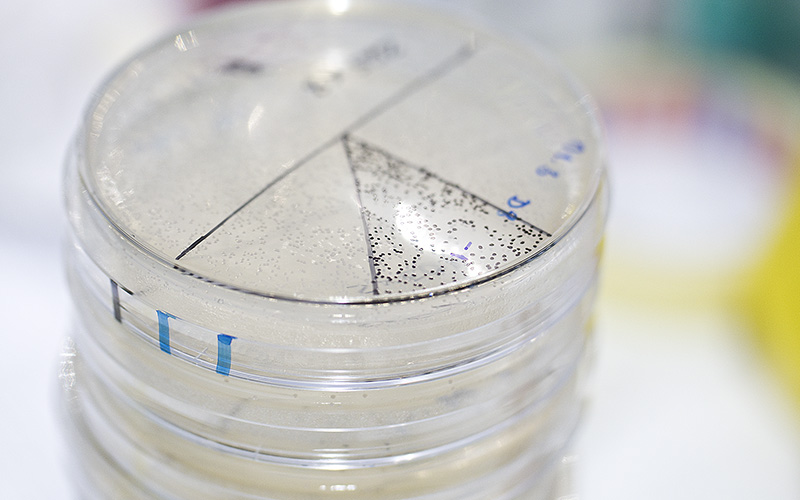Bursts of diversity in the gut microbiota

Scientists lead by Isabel Gordo, catch in real time the emergence of bursts of diversity in the microbiota, caused by bacterial cells with mutation rates similar to those of cancer. The diversity of bacteria in the human gut is an important biomarker of health, influences multiple diseases, such as obesity and inflammatory bowel diseases and affects various treatments. How such diversity is maintained remains a mystery.
Scientists have been realizing that bacteria can mutate and evolve in our intestines much faster than previously thought. But know, researchers from the Instituto Gulbenkian de Ciência, have found that certain bacteria cells can evolve to mutate at rates 1000-fold higher than normal – called mutators – and thus generate bursts of diversity at unprecedented amounts. Using laboratory mice and focusing on a gut bacteria that colonizes all humans, they show that amongst sea of rubbish, caused by many mutations which reduced the fitness of the mutators, a ruby was found: a beneficial mutation that increases the ability of the bacteria to eat a specific sugar in the gut and is responsible for the burst of diversity observed. This finding helps to explain the uniqueness of the microbiome within each person and the variation observed after some therapeutic interventions. In the future rseachers want to find ways to modulate the effects of mutations, via diet interventions or chemical compounds.
Read paper on PLoS Biology
